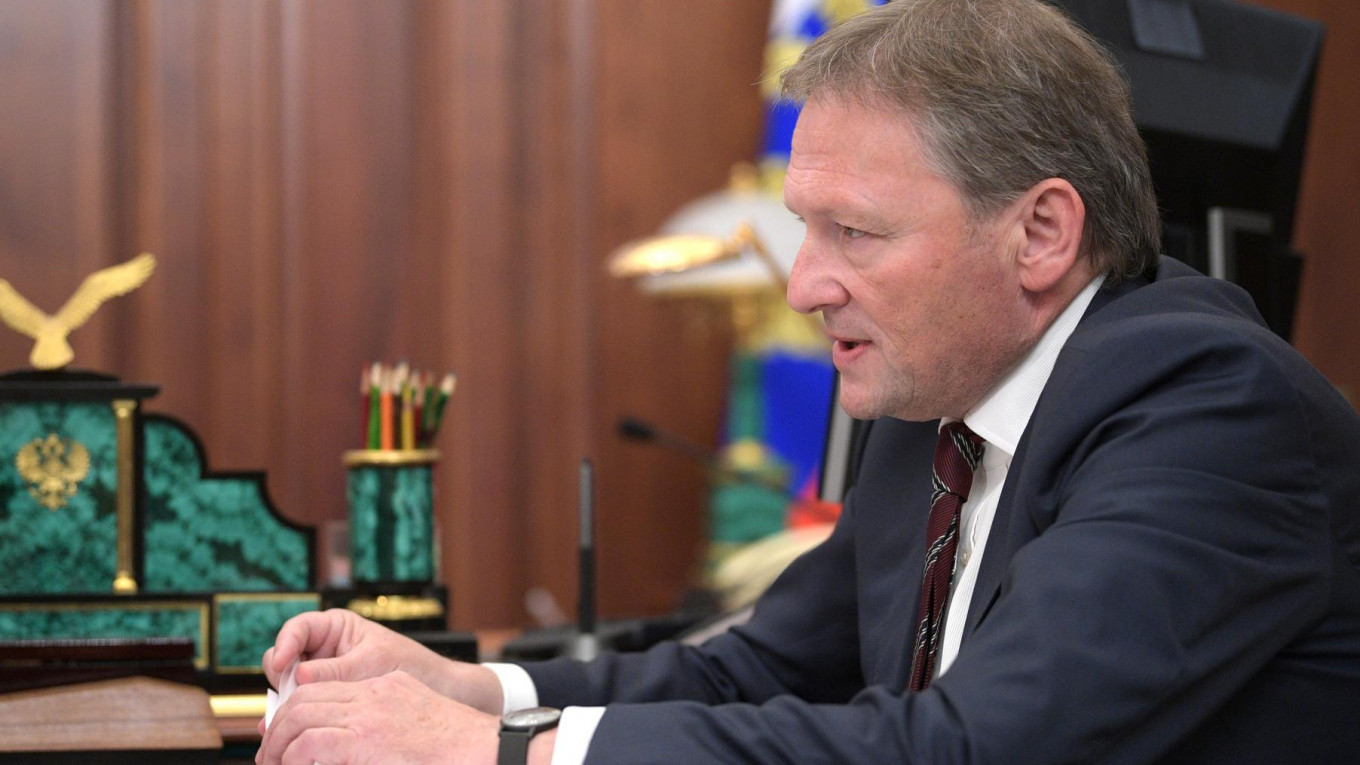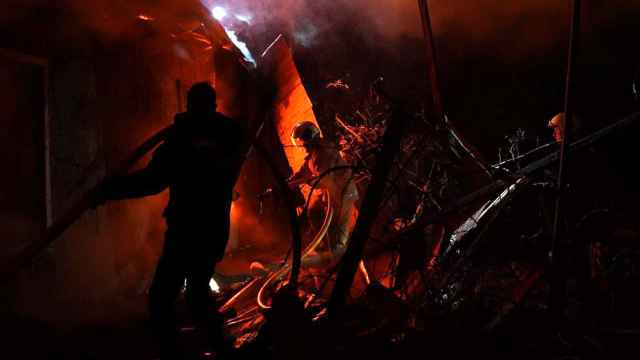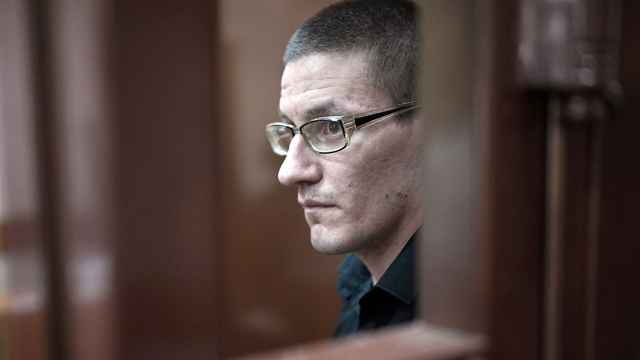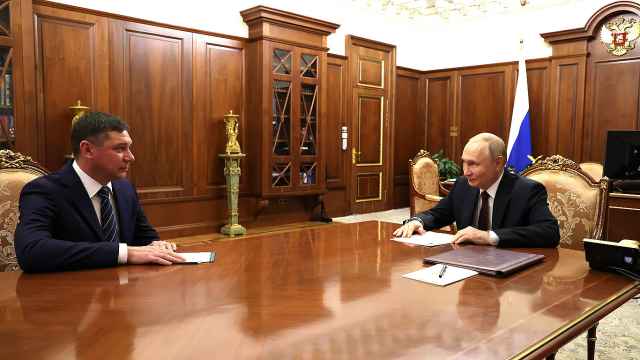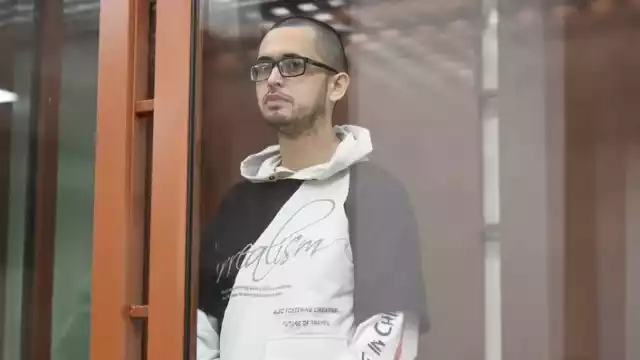Russian business ombudsman Boris Titov will run for president in the 2018 election, representing the business-oriented Party of Growth, the party announced Saturday.
Titov will run on the "Growth Strategy" program developed by the Stolypin Club. Although he is unlikely to become a serious competitor for president Vladimir Putin, the participation of the ombudsman could bring pressing economic issues to the forefront of the election debate.
Unlike the opposition candidate Ksenia Sobchak, Titov is a political heavyweight and will inject a measure of reality into an election that could have otherwise been a piece of political theatre.
Although Titov is part of the Kremlin establishment and friends with president Vladimir Putin he is also an economic liberal and heads up the president’s efforts to fight corruption.
The Stolypin Club is named after the Russia reformist prime minister who attempted to remake Tsarist Russia at the start of the 20th century. Today, a statue of Stolypin stands outside Moscow's White House, the seat of the government, and he is revered as Russia's greatest reformer.
Besides Titov, the Stolypin Club includes many of Russia's leading liberal minds such as, presidential adviser Sergei Glazyev, Deputy Chairman of Vnesheconombank Andrei Klepach, the deputy chairman of the Duma committee on economic policy Victor Zvagelski and the former Economy Minister Alexey Ulyukayev, who is now facing corruption charges after allegedly taking a bribe from the hear of state-owned oil company Rosneft Igor Sechin in what is widely seen as a set up to remove a rival.
Although Titov has been an outspoken critic of corruption and inefficiencies of the system, observers surveyed by the Vedomosti business daily and the RBC business portal note that Titov is unlikely to be viewed as an independent candidate opposing the Kremlin because his position as ombudsman is closely tied with the presidential administration.
The potential of Titov is seen at capped at about just over one percent of the votes, similar to the results of his Party of Growth — although some experts surveyed even doubt that the party will be able to collect the necessary signature count to register the candidate.
Kremlin could be interested in having Titov run alongside Putin for two reasons: for helping to bring the "business voter" and raise voter turnout; a low turnout is the main risk in providing Putin’s re-election with some legitimacy. His candidacy will also give more weight to the Stolypin Club economic development plan vis-a-vis the so-called Plan K developed by ex-Finance Minister Alexei Kudrin.
The main difference between the programs is that Titov wants to see the state stimulate the economy with massive spending, whereas Kudrin wants to hold wages back and encourage investment to produce sustainable growth — and so far Kudrin has been getting his way.
Up to now, Alexei Navalny and Kenia Sobchak are the only opposition candidates to have announced the intention to run for president in 2018. Their poll numbers are negligible at 1-2 percent and they both are yet to comply with the red tape required to register a candidate. Navalny also has a criminal conviction in a corruption case and the election commission has barred him from standing.
On Nov. 20, the Interfax news agency reported that veteran ultranationalist politician Vladimir Zhirinovsky of the Liberal Democratic Party of Russia (LDPR) will be running for president for the sixth time. The leader of the Communist Party of Russia (KPRF) Gennady Zyuganov was also planning to run, according to unconfirmed reports. Their poll numbers are at about 3 percent.
Vladimir Putin, whose approval ratings have been record-high at over 80 percent, has yet to announce that he will be running for president in 2018, whether as a candidate of the ruling United Russia party, as an independent candidate. He is widely expected to announce his candidacy after his annual press conference in the middle of December.
In the highly likely outcome of Vladimir Putin running for president, the greatest other threat to his re-election is perhaps public apathy or indecisiveness, with recent polls showing that over 40 percent of Russian don’t know who to vote for, or whether they would vote at all.
A Message from The Moscow Times:
Dear readers,
We are facing unprecedented challenges. Russia's Prosecutor General's Office has designated The Moscow Times as an "undesirable" organization, criminalizing our work and putting our staff at risk of prosecution. This follows our earlier unjust labeling as a "foreign agent."
These actions are direct attempts to silence independent journalism in Russia. The authorities claim our work "discredits the decisions of the Russian leadership." We see things differently: we strive to provide accurate, unbiased reporting on Russia.
We, the journalists of The Moscow Times, refuse to be silenced. But to continue our work, we need your help.
Your support, no matter how small, makes a world of difference. If you can, please support us monthly starting from just $2. It's quick to set up, and every contribution makes a significant impact.
By supporting The Moscow Times, you're defending open, independent journalism in the face of repression. Thank you for standing with us.
Remind me later.


